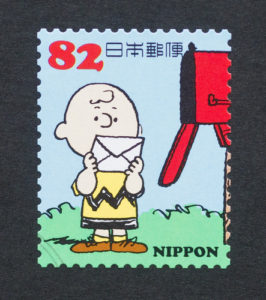By Kathryn Lilley
 For those of us who still work (or aspire to work) in the land of traditional publishing, we all encounter rejection at some point. Most published authors get turned down by numerous agents and editors on the road to publication. Learning to deal with “No” is part of the writing process—I’d even say it’s one of the most important parts. You have to be able to handle rejection to stick with writing long enough to get better. And let’s face it: when we’re starting off as beginners, most of us have to become better writers in order to produce anything publishable. Agent, editors: those traditional publishing gatekeepers may be the dreaded Gorgons who spew fiery “No!” in boilerplate missives, but they have traditionally served a vital function. They force us to improve our writing.
For those of us who still work (or aspire to work) in the land of traditional publishing, we all encounter rejection at some point. Most published authors get turned down by numerous agents and editors on the road to publication. Learning to deal with “No” is part of the writing process—I’d even say it’s one of the most important parts. You have to be able to handle rejection to stick with writing long enough to get better. And let’s face it: when we’re starting off as beginners, most of us have to become better writers in order to produce anything publishable. Agent, editors: those traditional publishing gatekeepers may be the dreaded Gorgons who spew fiery “No!” in boilerplate missives, but they have traditionally served a vital function. They force us to improve our writing.
But no matter how you rationalize it, being rejected feels like total crap. So whenever we get the dreaded “Not for us” email or letter in the mailbox, it can be comforting to recall the rejection-war stories of other writers:
In his book On Writing, Stephen King describes the wad of rejection notes he had stuck on a spike in his bedroom, and the encouragement he felt when he finally got one that said something along the lines of, “Not for us, kid, but try again—you’ve got talent.”
NPR’s Liane Hansen did a story that told the story of how soon-to-be famous writers, including Jack Kerouac and George Orwell, were rejected by the publisher Alfred A. Knopf. Possibly the best of the lot was the one that rejected Kerouac’s On the Road, in which an editor reportedly stated, “I don’t dig this one at all.”
My most memorable rejection came from an agent who had requested to read my manuscript on an exclusive basis. (My advice? Never give an agent an exclusive. It’s a better deal for the agent than the writer.) After keeping me in suspense for a long while, she eventually sent me an email along the lines of:
“Dear Kathryn: I really wanted to like this story. But I just didn’t like the character; I didn’t like the story; I didn’t like the voice. In fact, I just didn’t like anything at all about this story at all.”
Ouch. Fortunately, the next agent who read the manuscript loved the story, agreed to represent me, and quickly got me a series contract.
What about you? What’s been your best/worst rejection letter thus far?



Aside from the ones that (back in the day when we still had to mail them) had “NO!” written on the cover letter, this is my “favorite.”
“We did review your proposal, and for some reason we don’t feel we can represent it. Some of them come close, and yours may well be one of those, but we do have our reasons for declining.”
“We do have our reasons for declining…”
BUT WE’RE NOT GOING TO TELL YOU. HAHAHAHA!
Talk about passive-aggressive. This might be the stupidest rejection I ever read, Terry. Be thankful this sad person didn’t turn out to be your editor. Can you imagine the feedback you would have gotten?
It was from an agent, and I can only imagine the “hard work” this particular agency would have done for me.
They’d work hard, but they’d never tell you what they were doing that was hard. 🙂
Your point that rejection improves our writing is absolutely true. The editors who took the time in my green and salad days to point out my errors provided invaluable lessons. Unfortunately, the ease of self-publishing has unleashed a tsunami of bad, bad writing into the marketplace, which has made readers even more wary of all new publications.
As for the best rejection I’ve ever received, that’s easy. I was encouraged to double my efforts when one editor informed me she was going to pass on my submission but added, “However, we appreciate your strong writing skills and obvious talent. We’re interested in reading more of your work. Do please keep us in mind with something new.”
That made my day.
Tsunami is right, Mike. One thing I’ve learned over the years I’ve been attending critique groups is that most people lack a critical ear for the quality of their own writing. They want to start submitting stuff when it is WAY off the mark, to put it mildly. I always feel like the Grinch Who Stole Book Publishing when I try to suggest to them (as tactfully and gently as possible) that their manuscript needs more work. Thanks for stopping by today!!
A couple of classic rejections sent to Snoopy:
“Enclosed are two rejection letters: one for this book, and one for your next.”
AND
“Please don’t send us any more. Please, please!”
To which Snoopy smiles and says, “I love to hear an editor beg.”
My absolute fave on Snoopy handling rejection: “Gentlemen, about the rejection slip you recently sent me. I think there may have been a misunderstanding. What I really wanted was for you to publish my story and send me fifty thousand dollars. Didn’t you realize that?”
It took me four years to get the first contract, so I understand rejection. Then, after ten published novels, as happens to most of us it became necessary for my agent to query another publisher. We submitted a proposal for a medical thriller to an editor of a fairly well-known publisher, whose response was essentially, “Get rid of the medical stuff.” Duh, that’s what I write. Oh, and I got a multi-book contract from another publisher.
Because as COMA proved, no one likes a medical thriller. 🙂
Thanks for the war story, Richard!!
Near the very beginning of my career, I was working w/ a legendary short story writer who had agreed to help me improve my writing. I sent him a story that I was terribly proud of and had gotten great feedback on in a recent workshop. His only comment (scrawled in red across the top)? “I don’t know what to do with this.”
*cringe*
Hmm, methinks that legendary writer had no future as a teacher in any field. Thanks for sharing your story, Laura!